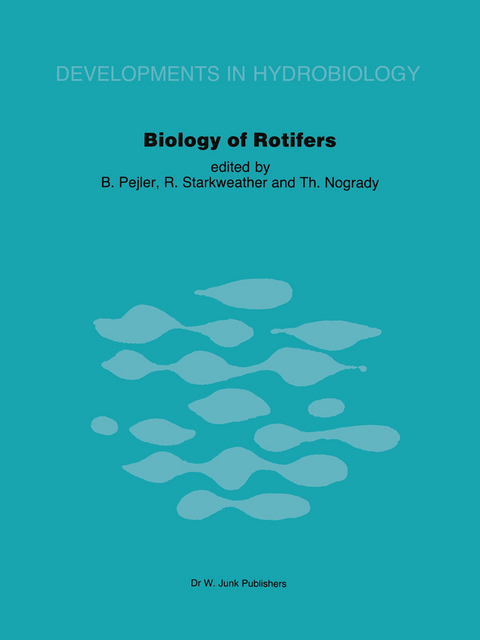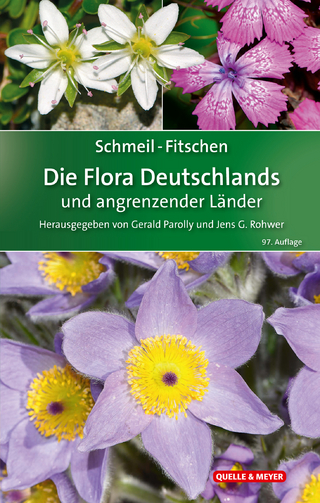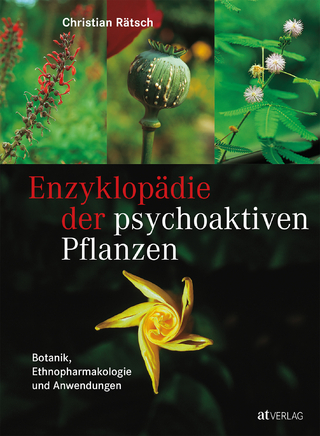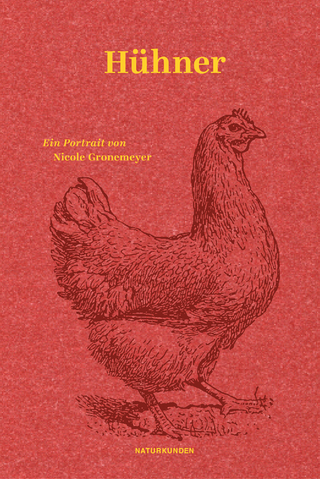
Biology of Rotifers
Springer (Verlag)
978-94-009-7289-6 (ISBN)
One: Taxonomy and Evolution.- 1. Rotifera or Rotatoria?.- 2. Parallelism in the evolution of rotifers.- 3. Rotifera from Western Australian wetlands with descriptions of two new species.- Two: Geographical Distribution.- 4. Biogeography of rotifers.- 5. The Indian species of the genus Brachionus (Eurotatoria: Monogononta: Brachionidae).- 6. Rotifer communities of billabongs in northern and south-east Australia.- 7. Rotifera from northeastern Quebec, Newfoundland and Labrador, Canada.- 8. Rotifers of the Antarctic and Subantarctic.- Three: Culturing and Related Methods.- 9. Environmental factors affecting hatching of rotifer (Brachionus plicatilis) resting eggs.- 10. Continuous culture of the rotifer Brachionus plicatilis fed recycled algal diets.- 11. Production of the rotifer Brachionus plicatilis for aquaculture in Kuwait.- 12. Cryopreservation of monogonont rotifers.- Four: Structure.- 13. Behavior and ultrastructure of sensory organs in rotifers.- 14. Some historical specimens of rotifers examined by scanning electron microscopy.- Five: Biochemistry and Aging.- 15. A re-examination of the Lansing Effect.- 16. Aging in Brachionus plicatilis: The evolution of swimming as a function of age at two different calcium concentrations.- 17. Macromolecular synthesis during embryogenesis of Habrotrocha rosa Donner I. Replication of DNA.- 18. Cholinergic neurotransmission in rotifers.- Six: Ecology: Laboratory And Field Studies.- 19. Rotifer nutrition using supplemented monoxenic cultures.- 20. Control of sexuality in Asplanchna brightwelli: threshold levels of dietary tocopherol and modification of tocopherol response by exogenous and endogenous factors.- 21. Life histories of some species of Rotifera Bdelloidea.- 22. The significance of mating processes for the genetics and for the formation of resting eggs in monogonont rotifers.- 23. Phototaxis in monochromatic light and microspectrophotometry of the cerebral eye of the rotifer Brachionus Calyciflorus.- 24. An experimental system for the automatic tracking and analysis of rotifer swimming behaviour.- 25. Sensory receptors involved in the feeding behaviour of the rotifer Asplanchna brightwelli.- 26. Resting eggs in rotifers.- 27. On temperature acclimation in an experimental population of Brachionus calyciflorus.- 28. The Rotatoria-Monogononta of the River Drava in Slovenia, Yugoslavia.- 29. Ammonia nitrogen and inorganic phosphorus excretion by the planktonic rotifers.- 30. Comparative studies on the relationship between temperature and duration of embryonic development of rotifers.- 31. Composition, dynamics and production of Rotatoria in the plankton of some lakes of the Danube Delta.- 32. Vertical distribution and rotifer concentrations in the chemocline of meromictic lakes.- 33. Changes in the relative abundance of Polyarthra vulgaris and P. dolichoptera, following the elimination of fish.- 34. Seasonal abundance of psammon rotifers.- 35. Biometric analysis of Brachionus plicatilis ecotypes from Spanish lagoons.- 36. Comparative analysis of plankton rotifer biomass in large Estonian lakes.- 37. Morphological variation of Keratella cochlearis (Gosse) in Lake Biwa, Japan.- 38. Notes on the rotifers of coal mine water in Eastern Poland.- 39. Rotifer occurrence in relation to water temperature in Loch Leven, Scotland.- 40. Substrate selection and larval settlement by Cupelopagis vorax.- 41. Changes in growth and size of Keratella Cochlearis (Gosse) in relation to some environmental factors in cultures.- 42. Production of planktonic Rotatoria in Ormajärvi, an eutrophicated lake insouthern Finland.- 43. Annual dynamics and production of rotifers in an eutrophication gradient in the Baltic Sea.- 44. Occurrene of Rotifera in the field under natural and intentionally-changed conditions.- 45. Abundance, dynamics and succession of planktonic rotifers in Lake Biel, Switzerland.- 46. Community structure of planktonic rotifers in a mesotropic lake.- 47. Rotifers as indicators of lake types in Estonia.- 48. Interactions between Asplanchna and Keratella cochlearis in the Plußsee.- 49. Empty loricas and the dynamics of Kellicottia longispina in a subalpine, oligotrophic lake.- 50. Utilization of cyanobacteria by Brachionus calyciflorus: Anabaena flos-aquae (NRC-44-1) as a sole or complementary food source.- 51. Clearance rates of sessile rotifers: In situ determinations.- 52. Invertebrate predation of planktonic rotifers.
| Reihe/Serie | Developments in Hydrobiology ; 14 |
|---|---|
| Zusatzinfo | 420 p. |
| Verlagsort | Dordrecht |
| Sprache | englisch |
| Maße | 210 x 280 mm |
| Themenwelt | Sachbuch/Ratgeber ► Natur / Technik ► Naturführer |
| Naturwissenschaften ► Biologie ► Limnologie / Meeresbiologie | |
| Naturwissenschaften ► Biologie ► Ökologie / Naturschutz | |
| Naturwissenschaften ► Biologie ► Zoologie | |
| ISBN-10 | 94-009-7289-X / 940097289X |
| ISBN-13 | 978-94-009-7289-6 / 9789400972896 |
| Zustand | Neuware |
| Haben Sie eine Frage zum Produkt? |
aus dem Bereich


